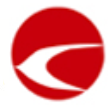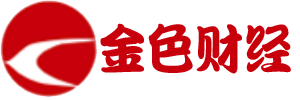SEC Chairman Charts Course for U.S. Leadership in Crypto, AI, and Internatio...
 摘要:
SEC主席为美国在加密货币、人工智能和国际领域的领导地位绘制路线图,他强调了加密货币和人工智能的重要性,并强调了美国在全球科技领域的领导地位,他还提到了加强国际合作的重要性,以确保...
摘要:
SEC主席为美国在加密货币、人工智能和国际领域的领导地位绘制路线图,他强调了加密货币和人工智能的重要性,并强调了美国在全球科技领域的领导地位,他还提到了加强国际合作的重要性,以确保... SEC主席为美国在加密货币、人工智能和国际领域的领导地位绘制路线图,他强调了加密货币和人工智能的重要性,并强调了美国在全球科技领域的领导地位,他还提到了加强国际合作的重要性,以确保新技术的发展能够造福全人类,这段摘要简洁明了地概括了文章的主旨。
TMTPOST – Paul S. Atkins, Chairman of the U.S. Securities and Exchange Commission (SEC), called for a bold rethinking of global financial regulation, emphasizing investor protection, market efficiency, and the promotion of innovation in both traditional and digital finance.
Speaking at the inaugural OECD Roundtable on Global Financial Markets in Paris, Atkins outlined his vision for modernizing regulatory frameworks, fostering international cooperation, and embracing technological transformation, including cryptocurrency, blockchain, and artificial intelligence (AI).
One of Atkins’ central themes was the need to revisit the “special treatment” rules that the SEC has afforded to foreign companies for more than four decades. These regulations historically offered accommodations to foreign companies seeking to list on U.S. exchanges, taking into account differences in accounting standards, corporate governance, and market practices.
“At the SEC, we are committed to ensuring that U.S. and foreign companies operate on a level playing field while protecting investors’ rights,” Atkins said. “Our goal is not to restrict foreign listings, but to ensure fair competition and clarity for investors.”
The SEC is now considering introducing additional requirements for foreign companies, such as a minimum threshold for overseas trading volume or a primary listing on a major international exchange. These measures aim to distinguish the regulatory treatment of foreign entities from that of domestic companies while maintaining the U.S. capital markets as an attractive destination for international investment.
Atkins recalled his own experience in Europe during the late 1980s and early 1990s, noting that the formation of the European Single Market and subsequent capital market initiatives highlighted the importance of international collaboration. “Powerful sovereign nations like the United States must engage constructively with global partners in ways that promote mutual prosperity,” he said.
In tandem with reassessing foreign issuer treatment, Atkins stressed the importance of high-quality accounting standards and the principle of financial materiality. He noted that while U.S. companies adhere to Generally Accepted Accounting Principles (GAAP), foreign firms often rely on International Financial Reporting Standards (IFRS) issued by the International Accounting Standards Board (IASB).
“The foundation of any effective regulatory regime is reliable and high-quality financial reporting,” Atkins said. He urged the IASB to focus on the essence of financial reporting and warned that if capital markets are diluted by sustainability or politically motivated issues, the applicability of international standards could be reconsidered.
Atkins also emphasized the need for stable funding for the IASB and the IFRS Foundation. “Sustained and adequate funding ensures the ongoing development of high-quality accounting standards,” he explained. “We must avoid diverting resources to speculative or hollow topics that do not serve investors or market efficiency.”
Turning to disclosure and regulatory philosophy, Atkins expressed opposition to the European Union’s “double materiality” framework, which requires companies to report on both financial and non-financial impacts. He argued that focusing on financial materiality—where disclosure obligations primarily serve investor interests—is essential for efficient capital allocation and reducing unnecessary compliance burdens.
“The mandatory nature and complexity of double materiality rules risk imposing costs ultimately borne by investors and consumers,” Atkins said. He called on regulators to return to a framework that emphasizes financial performance and shareholder interests, while avoiding policy objectives unrelated to business outcomes.
Perhaps the most forward-looking element of Atkins’ speech was the SEC’s stance on digital assets and blockchain innovation. Acknowledging the transformative potential of cryptocurrencies, the SEC has launched a new initiative—Crypto Projects—aimed at creating a predictable regulatory environment for tokenized finance.
“For too long, fragmented enforcement actions stifled innovation and drove capital overseas,” Atkins said. “We are entering a new chapter: policy-making will be clear, predictable, and designed to allow entrepreneurs to thrive on American soil.”
Key priorities for Crypto Projects include clearly defining the securities status of crypto assets, facilitating on-chain capital raising, and supporting the development of “super app”-style platforms that integrate trading, lending, and staking services. Atkins emphasized the principle of “minimum effective regulation,” designed to protect investors without unnecessarily constraining innovation.
By embracing blockchain technology and integrated trading platforms, the SEC hopes to position the United States as a global hub for cryptocurrency markets. The agency also intends to collaborate with international partners to ensure regulatory alignment, citing the EU’s Markets in Crypto-Assets (MiCA) framework as a model for cross-border coordination.
Atkins also highlighted the SEC’s commitment to supporting innovation in AI-driven financial markets. He introduced the concept of “autonomous agent finance,” where AI systems execute trades, allocate capital, and manage risk at speeds beyond human capability. By embedding compliance and risk controls into AI-driven trading, the SEC aims to ensure that technological advancement does not compromise investor protection.
“Markets will become more efficient and less costly, and investment strategies once reserved for Wall Street giants will become accessible to a broader range of participants,” Atkins said. He urged regulators to proactively create frameworks for AI in finance while avoiding overreaction or unnecessary restrictions that could stifle innovation.
The integration of AI and blockchain, Atkins noted, represents a unique opportunity to enhance market competition, empower individual investors, and drive new economic growth. He emphasized that U.S. leadership in this area is critical, warning that failure to act decisively could result in the country falling behind in financial innovation.
Atkins repeatedly underscored the importance of international collaboration in realizing the full potential of financial innovation. By coordinating with Europe and other jurisdictions, the U.S. aims to strengthen capital market efficiency, expand investment opportunities, and reinforce transatlantic economic partnerships.
He praised the EU’s proactive approach to digital asset regulation and encouraged the United States to learn from MiCA while maintaining its own competitive edge. “We can expand the frontiers of freedom and prosperity by working together,” Atkins said, quoting Alexis de Tocqueville.
The SEC chairman also highlighted the shared responsibility of governments to support innovation while maintaining investor confidence. By aligning regulatory frameworks across borders, he argued, countries can foster more dynamic and resilient markets that benefit both domestic and international participants.
Atkins’ remarks reflect a broader strategic vision for the SEC: one that balances investor protection with the promotion of innovation, cross-border cooperation, and the adoption of emerging technologies. He portrayed the current moment as an inflection point, where U.S. financial leadership depends on embracing change rather than resisting it.
“The era of on-chain capital markets and autonomous finance is approaching,” Atkins said. “The choice before us is simple but profound: either the United States leads this transformation, or we let this opportunity slip away. I choose leadership, freedom, and growth—for our markets, our economy, and for the next generation.”
In conclusion, Atkins called for continued dialogue and partnership among regulators, market participants, and international stakeholders. By collectively shaping the future regulatory environment, he said, the global financial system can achieve robust investor protection while fostering innovation and entrepreneurship.
The speech has immediate and long-term implications for investors, financial institutions, and companies operating in U.S. and international markets. Reforms to foreign issuer treatment could affect cross-listings and corporate governance practices. The renewed focus on financial materiality may influence reporting and compliance standards globally. Meanwhile, the SEC’s initiatives in cryptocurrency and AI-driven finance signal opportunities for entrepreneurs and investors seeking exposure to cutting-edge technologies.
Industry observers noted that Atkins’ address represents a more open and forward-looking SEC approach, contrasting with previous periods of heavy-handed enforcement. By emphasizing collaboration, technology adoption, and minimum effective regulation, the SEC is signaling a willingness to modernize its frameworks to keep pace with global innovation.
Experts also highlighted the potential for U.S.-EU cooperation in digital asset regulation. While Europe’s MiCA framework offers a structured approach, the U.S. strategy may allow for greater market flexibility, fostering competition and attracting global capital.
Despite the optimism, challenges remain. Defining the boundaries of securities law in crypto markets, ensuring reliable accounting standards across jurisdictions, and establishing robust AI governance frameworks are complex tasks. Additionally, balancing innovation with investor protection requires careful calibration to prevent systemic risks.
Atkins acknowledged these challenges but expressed confidence in collaborative solutions. “With our collective efforts, we can build a financial system that is innovative, resilient, and inclusive,” he said. The chairman’s call to action emphasizes not only U.S. leadership but also the benefits of international alignment and shared regulatory objectives.









